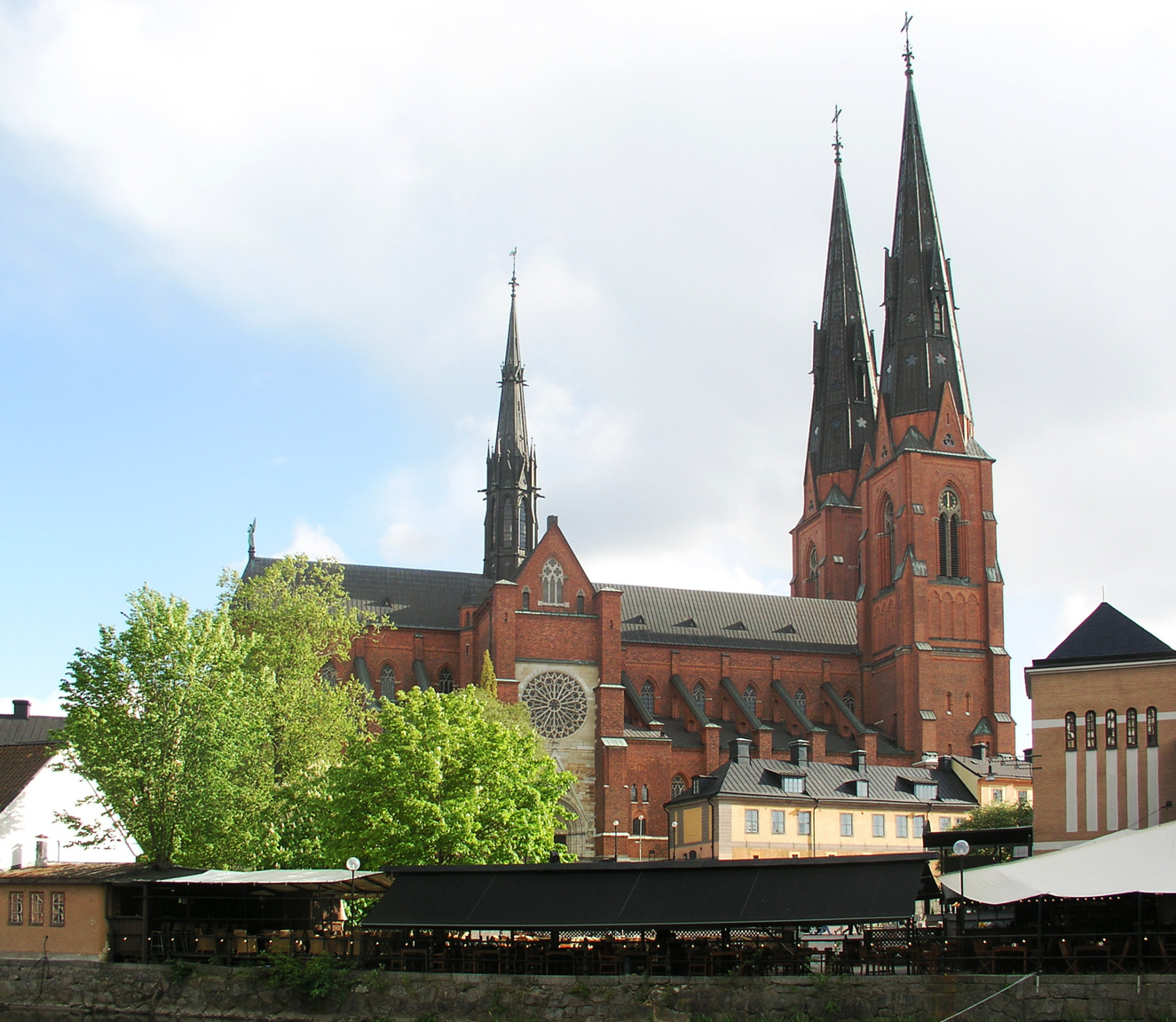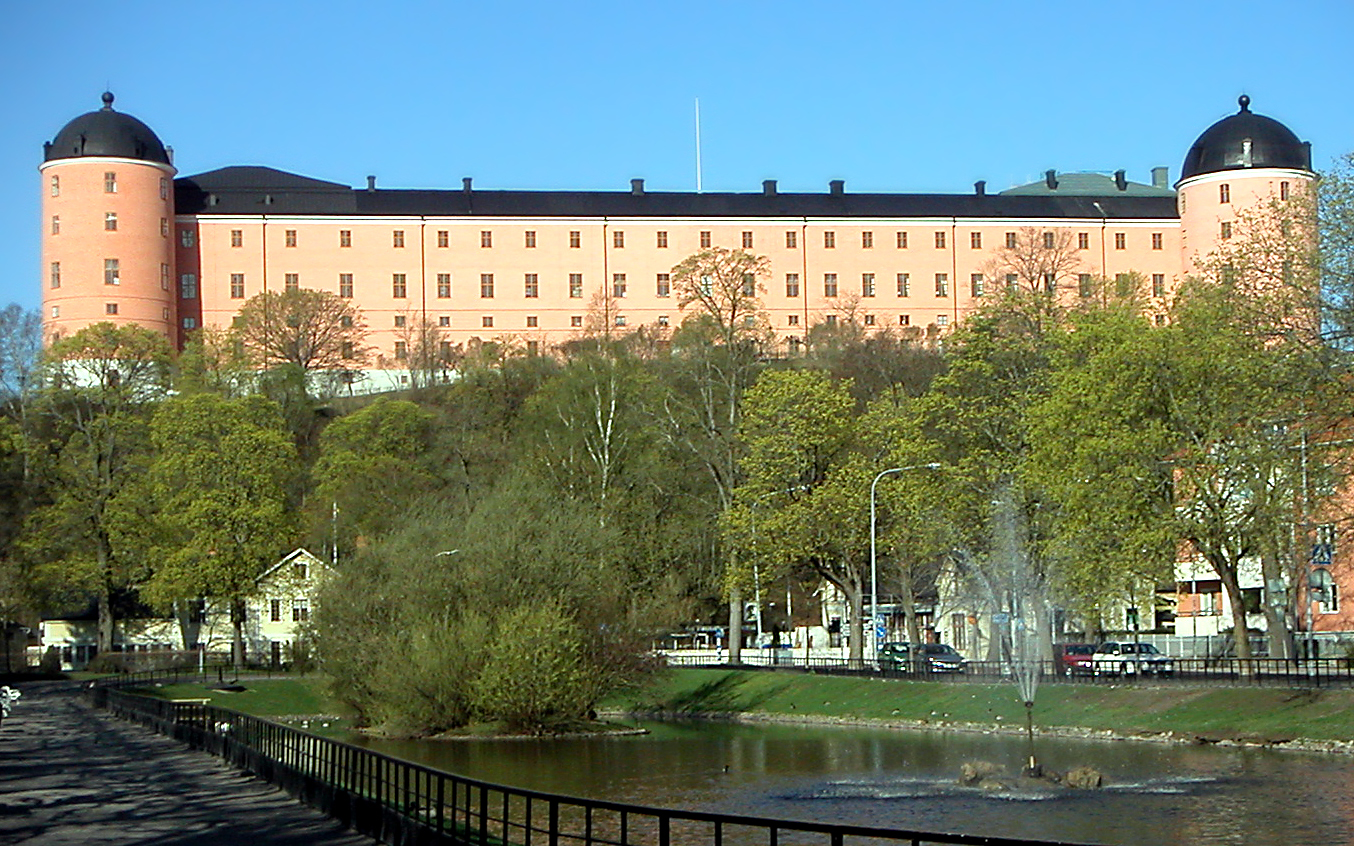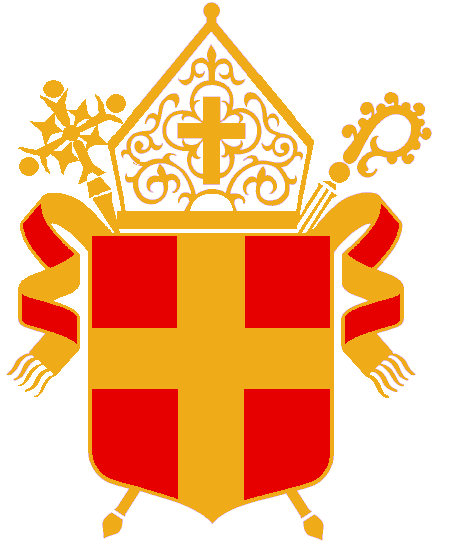|
Lars (archbishop)
Lars was the name of the Archbishop of Sweden 1255–1267. Lars is a Swedish form for the Latin name Laurentius, which in English is Lawrence. This was the name Lars used as an archbishop. His birthname is unknown. Lars was recruited from the recently established Franciscan monastery in Enköping. Since the monastery is unlikely to have had time to recruit Swedish monks, it is possible that he was foreign. In 1255, when Lars had just recently been ordained (which he was in the primate Lund), a papal letter arrived. The Pope expressed his belief in the Swedish monarch Birger Jarl. The situation in Sweden was still shaky. There was an ongoing struggle for the throne, which later forced the antagonists to tax the clergies to support their war. Another papal letter in 1257 expressed the Pope's support for crusades to the east, towards the Swedish parts of Finland that were either not yet Christianized, or had turned apostate. The inspiration came from the crusades to Jerusalem. La ... [...More Info...] [...Related Items...] OR: [Wikipedia] [Google] [Baidu] |
Archbishop Of Uppsala
The Archbishop of Uppsala (spelled Upsala until the early 20th century) has been the primate of Sweden in an unbroken succession since 1164, first during the Catholic era, and from the 1530s and onward under the Lutheran church. Historical overview There have been bishops in Uppsala from the time of Swedish King Ingold the Elder in the 11th century. They were governed by the archbishop of Hamburg-Bremen until Uppsala was made an archbishopric in 1164. The archbishop in Lund (which at that time belonged to Denmark) was declared primate of Sweden, meaning it was his right to select and ordain the Uppsala archbishop by handing him the pallium. To gain independence, Folke Johansson Ängel in 1274 went to Rome and was ordained directly by the pope. This practice was increasing, so that no Uppsala archbishop was in Lund after Olov Björnsson, in 1318. In 1457, the archbishop Jöns Bengtsson (Oxenstierna) was allowed by the pope to declare himself primate of Sweden. Uppsala (t ... [...More Info...] [...Related Items...] OR: [Wikipedia] [Google] [Baidu] |
Franciscan
The Franciscans are a group of related organizations in the Catholic Church, founded or inspired by the Italian saint Francis of Assisi. They include three independent Religious institute, religious orders for men (the Order of Friars Minor being the largest contemporary male order), an order for nuns known as the Order of Saint Clare, and the Third Order of Saint Francis, a Third Order of Saint Francis#Third Order Regular, religious and Secular Franciscan Order, secular group open to male and female members. Franciscans adhere to the teachings and spiritual disciplines of the founder and of his main associates and followers, such as Clare of Assisi, Anthony of Padua, and Elizabeth of Hungary. Several smaller Franciscan spirituality in Protestantism, Protestant Franciscan orders have been established since the late 19th century as well, particularly in the Lutheranism, Lutheran and Anglicanism, Anglican traditions. Certain Franciscan communities are ecumenism, ecumenical in nat ... [...More Info...] [...Related Items...] OR: [Wikipedia] [Google] [Baidu] |
Enköping
Enköping is a locality and the seat of Enköping Municipality, Uppsala County, Sweden with 30,000 inhabitants in 2018. Geography Enköping is situated near Lake Mälaren, about 78 km west of Stockholm. A comparably large number of Swedish cities are located in the vicinity of Enköping. The municipal slogan is therefore "Sweden's Closest City". This expression was created in 1965 when it was discovered by a local business that within a radius of 120 kilometers, one finds 38 Swedish cities and a third of Sweden's population. History Near Enköping, there is some of the best preserved rock art from the Bronze Age present in central Sweden. The city of Enköping itself dates its history back to the 13th century but the city itself did not emerge until about 1250. Enköping was then as now situated by the rich farmlands close to lake Mälaren, leading to a wealthy rural population. The city has also always been a major crossroads for commerce, and excellent communic ... [...More Info...] [...Related Items...] OR: [Wikipedia] [Google] [Baidu] |
Primate (bishop)
Primate () is a title or rank bestowed on some important archbishops in certain Christian churches. Depending on the particular tradition, it can denote either jurisdictional authority ( title of authority) or (usually) ceremonial precedence ( title of honour). Catholic Church In the Latin Church, a primate is an archbishop—or, rarely, a suffragan or exempt bishop—of a specific (mostly metropolitan) episcopal see (called a ''primatial see'') who has precedence over the bishoprics of one or more ecclesiastical provinces of a particular historical, political or cultural area. Historically, primates of particular sees were granted privileges including the authority to call and preside at national synods, jurisdiction to hear appeals from metropolitan tribunals, the right to crown the sovereign of the nation, and presiding at the investiture (installation) of archbishops in their sees. The office is generally found only in older Catholic countries, and is now purel ... [...More Info...] [...Related Items...] OR: [Wikipedia] [Google] [Baidu] |
Lund
Lund (, ;"Lund" (US) and ) is a city in the provinces of Sweden, province of Scania, southern Sweden. The town had 94,393 inhabitants out of a municipal total of 130,288 . It is the seat of Lund Municipality, Scania County. The Öresund Region, which includes ''Lund'', is home to more than 4.2 million people. Archeologists date the founding of Lund to around 990, when Scania was part of Denmark. From 1103 it was the seat of the Catholic Metropolitan Archdiocese of Lund, and the towering Lund Cathedral, built –1145, still stands at the centre of the town. Denmark ceded the city to Sweden in the Treaty of Roskilde in 1658. Lund University, established in 1666, is one of Scandinavia's oldest and largest institutions for education and research. [...More Info...] [...Related Items...] OR: [Wikipedia] [Google] [Baidu] |
Birger Jarl
Birger Jarl or Birger Magnusson (21 October 1266) was a Swedish statesman and regent, ''Swedish jarls, jarl'', and a member of the House of Bjälbo, who played a pivotal role in consolidating Sweden after the civil wars between the House of Erik and the House of Sverker. His first marriage was to Princess Ingeborg Eriksdotter of Sweden, Ingeborg of Sweden, which created his base of power. Birger led the Second Swedish Crusade, which established Finland under Swedish rule, Swedish rule in Finland. Additionally, he is traditionally attributed with the foundation of the Swedish capital, Stockholm, around 1250. Birger used the Latin title of ("duke of Swedes (tribe), Swedes and Geats"). Biography Early life Birger, likely born around the time of the Battle of Gestilren in 1210, spent his childhood and adolescence in Bjälbo, Bjälbo, Östergötland. The exact date of his birth is uncertain and historical sources are contradictory, but examinations of his remains suggest he wa ... [...More Info...] [...Related Items...] OR: [Wikipedia] [Google] [Baidu] |
Crusade
The Crusades were a series of religious wars initiated, supported, and at times directed by the Papacy during the Middle Ages. The most prominent of these were the campaigns to the Holy Land aimed at reclaiming Jerusalem and its surrounding territories from Muslim rule. Beginning with the First Crusade, which culminated in the Siege of Jerusalem (1099), capture of Jerusalem in 1099, these expeditions spanned centuries and became a central aspect of European political, religious, and military history. In 1095, after a Byzantine request for aid,Helen J. Nicholson, ''The Crusades'', (Greenwood Publishing, 2004), 6. Pope Urban II proclaimed the first expedition at the Council of Clermont. He encouraged military support for List of Byzantine emperors, Byzantine emperor Alexios I Komnenos, AlexiosI Komnenos and called for an armed pilgrimage to Jerusalem. Across all social strata in Western Europe, there was an enthusiastic response. Participants came from all over Europe and had a ... [...More Info...] [...Related Items...] OR: [Wikipedia] [Google] [Baidu] |
Apostate
Apostasy (; ) is the formal disaffiliation from, abandonment of, or renunciation of a religion by a person. It can also be defined within the broader context of embracing an opinion that is contrary to one's previous religious beliefs. One who undertakes apostasy is known as an apostate. Undertaking apostasy is called apostatizing (or apostasizing – also spelled apostacizing). The term ''apostasy'' is used by sociologists to mean the renunciation ''and'' criticism of, or opposition to, a person's former religion, in a technical sense, with no pejorative connotation. Occasionally, the term is also used metaphorically to refer to the renunciation of a non-religious belief or cause, such as a political party, social movement, or sports team. Apostasy is generally not a self-definition: few former believers call themselves apostates due to the term's negative connotation. Many religious groups and some states punish apostates; this may be the official policy of a particular re ... [...More Info...] [...Related Items...] OR: [Wikipedia] [Google] [Baidu] |
Celibacy
Celibacy (from Latin ''caelibatus'') is the state of voluntarily being unmarried, sexually abstinent, or both. It is often in association with the role of a religious official or devotee. In its narrow sense, the term ''celibacy'' is applied only to those for whom the unmarried state is the result of a sacred vow, act of renunciation, or religious conviction. In a wider sense, it is commonly understood to only mean abstinence from sexual activity. Celibacy has existed in one form or another throughout history, in virtually all the major religions of the world, and views on it have varied. Classical Hindu culture encouraged asceticism and celibacy in the later stages of life, after one has met one's societal obligations. Jainism, on the other hand, preached complete celibacy even for young monks and considered celibacy to be an essential behavior to attain moksha. Buddhism is similar to Jainism in this respect. There were, however, significant cultural differences in the va ... [...More Info...] [...Related Items...] OR: [Wikipedia] [Google] [Baidu] |
Excommunicate
Excommunication is an institutional act of religious censure used to deprive, suspend, or limit membership in a religious community or to restrict certain rights within it, in particular those of being in communion with other members of the congregation, and of receiving the sacraments. It is practiced by all of the ancient churches (such as the Catholic Church, Oriental Orthodox churches and the Eastern Orthodox churches) as well as by other Christian denominations; however, it is also used more generally to refer to similar types of institutional religious exclusionary practices and shunning among other religious groups. The Amish have also been known to excommunicate members that were either seen or known for breaking rules, or questioning the church, a practice known as shunning. Jehovah's Witnesses use the term disfellowship to refer to their form of excommunication. The word ''excommunication'' means putting a specific individual or group out of communion. In some deno ... [...More Info...] [...Related Items...] OR: [Wikipedia] [Google] [Baidu] |
Östra Aros
Uppsala ( ; ; archaically spelled ''Upsala'') is the capital of Uppsala County and the fourth-largest city in Sweden, after Stockholm, Gothenburg, and Malmö. It had 177,074 inhabitants in 2019. Located north of the capital Stockholm, it is also the seat of Uppsala Municipality. Since 1164, Uppsala has been the ecclesiastical centre of Sweden, being the seat of the Archbishop of the Church of Sweden. Uppsala is home to Scandinavia's largest cathedral – Uppsala Cathedral, which was the frequent site of the coronation of the Swedish monarch until the late 19th century. Uppsala Castle, built by King Gustav Vasa, served as one of the royal residences of the Swedish monarchs, and was expanded several times over its history, making Uppsala the secondary capital of Sweden during its greatest extent. Today, it serves as the residence of the Governor of Uppsala County. Founded in 1477, Uppsala University is the oldest centre of higher education in Scandinavia. Among the many schol ... [...More Info...] [...Related Items...] OR: [Wikipedia] [Google] [Baidu] |
List Of Archbishops Of Uppsala
This article lists the archbishops of Uppsala. Before the Reformation * 1164–1185: Stefan * 1185–1187: Johannes * 1187–1197: Petrus * 1198–1206: Olov Lambatunga * 1207–1219: Valerius * 1219 (1224)–1234: Olov Basatömer * 1236–1255: Jarler * 1255–1267: Lars * 1274–1277: Folke Johansson Ängel * 1278–1281: Jakob Israelsson * 1281–1284: Johan Odulfsson (not ordained) * 1285–1289: Magnus Bosson * 1289–1291: Johan * 1292–1305: Nils Allesson * 1308–1314: Nils Kettilsson * 1315–1332: Olov Björnsson * 1332–1341: Petrus Filipsson * 1341–1351: Heming Nilsson * 1351–1366: Petrus Torkilsson * 1366–1383: Birger Gregersson * 1383–1408: Henrik Karlsson * 1408–1421: Jöns Gerekesson (''Johannes Gerechini'') * 1421–1432: Johan Håkansson * 1432–1438: Olov Larsson (''Olaus Laurentii'') * 1433–1434: Arnold of Bergen (not ordained) * 1438–1448: Nicolaus Ragvaldi * 1448–1467: Jöns Bengtsson Oxenstierna * 1468–1469: Tor ... [...More Info...] [...Related Items...] OR: [Wikipedia] [Google] [Baidu] |






